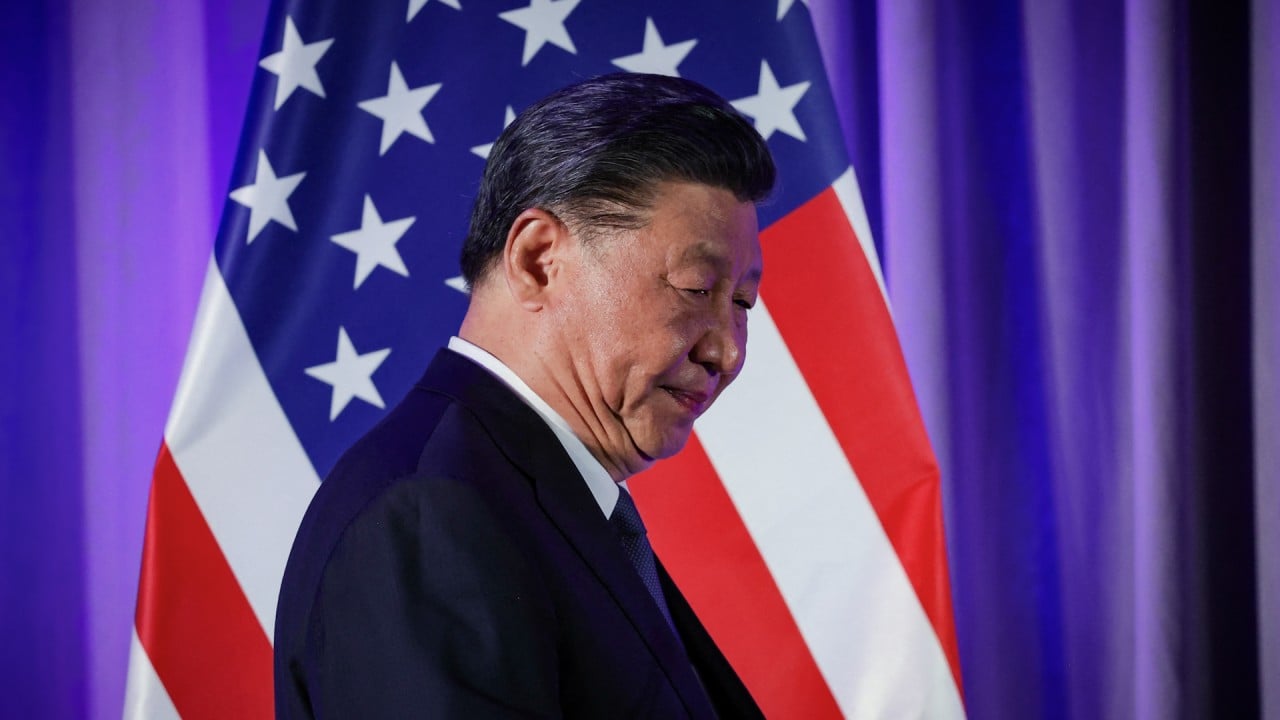
Tesla, Porsche chip in as Shanghai seeks to fix ‘sore point’ for foreign firms with 3-tier cross-border data flow rules
- Shanghai is seeking to roll out a three-tiered cross-border data flow regulation by March in a bid to address a long-standing ‘sore point’ for foreign firms
- American electric car manufacturer Tesla and Porsche’s China sales arm contributed to the proposals, but analysts said they might be too late
Foreign companies including American electric car manufacturer Tesla and Porsche’s China sales arm are among the firms being sought for their input as Shanghai steps up implementation of a three-tiered cross-border data flow regime amid efforts to reel in and retain international businesses.
Officials in China’s prominent industrial and commercial hub are striving to put in place by March lists of data permitted to flow abroad without restrictions, and of data that must receive further scrutiny.
It is billed as a big step in alleviating a long-standing “sore point” jamming the operations of foreign firms, as Shanghai moves to rekindle investors’ faith as well as its economic growth momentum, according to the state-backed Jiefang Daily newspaper.
Analysts welcomed the move, but said the central government still needs to get involved in systemically addressing and rectifying a slew of gripes faced by foreign firms, ranging from data management to national security law compliance.
China’s rose-tinted growth scrutinised through jaundiced eyes of wary foreigners
Under the proposals, data within Shanghai’s Lingang free-trade zone in Pudong district would be categorised into three types.
“General data” can be transferred overseas freely, while “important data” can also be shared, having passed a security review by the city’s cyberspace administration.
“Core data”, meanwhile, would be subject to the strictest oversight and must be hosted within China.
Lu Sen, chief of data management at the Lingang Free-trade Zone Administration Commission, revealed at a forum earlier this month that, under the auspices of state ministries, specific lists of general data were being drafted to cover carmakers and developers of autonomous vehicles, as well as financial institutions, shipping companies, traders and drug makers, all of which are pillar sectors in the zone.
“Task forces have been formed to pool officials, experts and representatives from leading companies in these sectors together to hammer out lists and menus for differentiated supervision,” Lu said.
Tesla, Porsche’s China sales subsidiary and SAIC’s joint ventures with foreign partners are among the 14 car companies crafting proposals to be released for implementation in March, according to the Jiefang Daily and an official with the Lingang Administration Commission who declined to be named.
While details of the categorisation criteria have not been released, Lu promised that the list of general data would be progressively expanded in a fashion similar to how China reduced the so-called negative list of the industries that banned foreign investors.
An American Chamber of Commerce in Shanghai business sentiment survey last year found that digital policies continued to trouble respondents, with 70 per cent labelling data localisation and other cybersecurity requirements as a hindrance.
The survey also showed 60 per cent complained about uncertainty over interpretation and enforcement, while 48 per cent said China’s digital and data security laws had increased operating costs.
“There has been significant confusion, including cross-border data filing and declaration requirements, and companies are burdened by inefficiencies and compliance costs,” the report said.
Foreign businesses will remain lukewarm over China
James Zimmerman, a partner in the Beijing office of international law firm Perkins Coie, said the new measures were a welcome step in the right direction, but that it might be “too late, and they don’t correct many of the hot-button issues”.
“Foreign businesses will remain lukewarm over China, and no level of corrective measures – as we see happening in Shanghai and other local jurisdictions – will make a difference if the bigger issues are not addressed,” warned Zimmerman, who is a former chairman of the American Chamber of Commerce in China.
“Separate from geopolitical tensions, foreign businesses have lost much faith in Beijing’s ability to manage the business environment and economy when an emphasis on national security overrides common sense.”
China saw an alarming 8 per cent annualised slump in the inflow of direct foreign investments last year, while industrial output by foreign firms grew marginally by 1.4 per cent in 2023.
Despite China’s debt and population woes, top cities aim for over 5% GDP growth
“A combination of a weak economy, compliance risks, and geopolitical tensions are prompting foreign companies to rethink China strategies. Yes, while China is potentially a large, attractive market, foreign businesses are rethinking whether to remain or expand,” Zimmerman added.
Shanghai attracted US$24 billion worth of foreign direct investment last year, up slightly from US$23.96 billion in 2022.
US pharmaceutical giant Moderna is among the companies that have pledged new investment into the city since the second half of last year.


